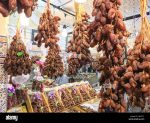Nigel Jenney, Chief Executive of the Fresh Produce Consortium (FPC), seems to be expressing concern about the immediate impact of new immigration rules on the food industry. His statement suggests that these rules pose a critical challenge for the industry, particularly in terms of ensuring the availability of affordable and safe food.
Immigration rules can affect the workforce in various industries, including agriculture and food production. If these rules make it more difficult for businesses to hire the necessary labor, it could lead to labor shortages in sectors heavily dependent on immigrant workers. In the context of the food industry, this could impact the production, harvesting, and processing of fresh produce.
Nigel commented on Linkedin
“The immediate effect of the new immigration rules poses a critical challenge for the industry. I would have hoped feeding the nation by promoting the availability of affordable, safe food was a key priority of Government.”
Labor shortages often result in increased costs for businesses, as they may need to offer higher wages to attract local workers or invest in automation to compensate for the lack of manpower. These increased operational costs can then be passed on to consumers in the form of higher food prices.
Immigration Rules: Unraveling the Impact on Food Prices in the UK”
The United Kingdom’s immigration rules have long been a topic of discussion and debate, influencing various sectors of the economy. In recent times, concerns have been raised about the potential ramifications of these rules on the nation’s food industry, particularly in terms of food prices and the overall availability of affordable, safe produce. This article aims to explore the intricate relationship between immigration rules and food prices in the UK.
The Crucial Role of Immigration in the Food Industry:
The food industry in the UK heavily relies on a diverse and often migrant workforce. From planting and harvesting crops to processing and packaging, many tasks within the agricultural and food production sectors are fulfilled by workers from different parts of the world. These individuals contribute significantly to the efficiency and productivity of the industry, ensuring a steady supply of fresh produce to meet the demands of the nation.
The Impact of Labor Shortages:
Recent changes in immigration rules have raised concerns about potential labor shortages in the food industry. Stringent regulations may make it more challenging for businesses to hire migrant workers, leading to a shortfall in the workforce. This, in turn, can have a direct impact on the production and processing of food, potentially resulting in delays, reduced output, and increased operational costs.
Higher Operational Costs and Automation:
Labor shortages often force businesses to increase wages to attract local workers, and this can contribute to higher operational costs. To mitigate the impact, some businesses might turn to automation, investing in technology to replace human labor. While automation can enhance efficiency, it also requires significant upfront investments that can strain the financial resources of smaller enterprises.
Passing the Buck to Consumers:
Ultimately, the increased operational costs incurred by businesses are often passed on to consumers in the form of higher food prices. From fruits and vegetables to processed goods, the cost of production plays a crucial role in determining the prices that consumers see on the shelves. As a result, any disruption in the labor market due to changes in immigration rules can have a direct impact on the affordability of food for the general population.
Government Priorities and Food Security:
Nigel Jenney, Chief Executive of the Fresh Produce Consortium, has expressed concern over the potential implications of immigration rules on the nation’s ability to feed itself. His statement highlights the importance of considering food security as a key priority when shaping immigration policies. Striking a balance between controlling immigration and ensuring the availability of affordable, safe food is crucial for maintaining a sustainable and resilient food supply chain.
The relationship between immigration rules and food prices in the UK is complex and multifaceted. As policymakers navigate the delicate balance between controlling immigration and sustaining the nation’s food security, it is essential to consider the broader impact on the food industry. Striking a harmonious balance will be crucial in ensuring that the UK continues to enjoy a diverse, affordable, and secure food supply in the years to come.



